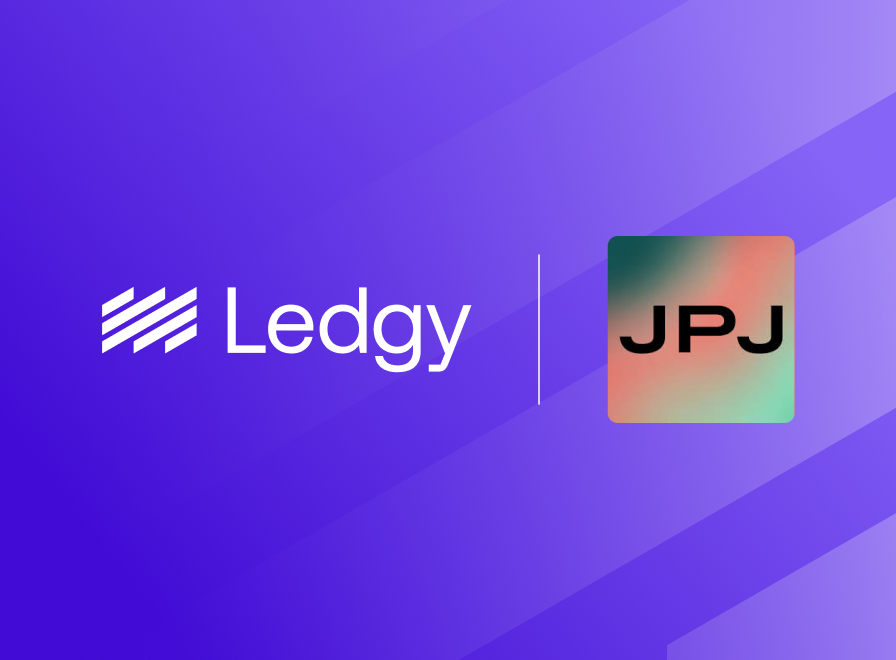My equity journey, with Sequoia Capital's Konstantine Buhler



When the Zoom meeting kicks off, Konstantine Buhler is sitting himself down at the far end of a long table, somewhere in Sequoia Capital’s Menlo Park office. Dressed in a crisp white shirt, he seems ready to get up and go – the time in California is 08:30.
At Ledgy we’re lucky to enjoy relationships with some of the world’s best venture capital investors. But the conversation I’m having with Konstantine is a little different. We’re about to dive into his family history, journeying through conflict, risk-taking, and entrepreneurship across different continents. It’s an incredible story that underscores the transformative potential of equity and ownership.
But first, some context. I had initially interviewed Konstantine as a special guest in a Ledgy company meeting earlier in 2022. A few months beforehand, Sequoia had agreed to lead Ledgy’s Series A funding round, and as a growing company, we wanted to take any opportunity to learn from Sequoia’s investors.
Of course, I wanted to quiz Konstantine on how he became an investor and why equity – as the driving force behind Ledgy – fascinates him. He responded: “I have family from Greece but my heritage is from all over Europe. And through my family’s journey, ownership has been at the core of any success we have found.”
His comment piqued my interest. So this time, I wanted to go back with Konstantine to where his family’s journey into ownership started.
Entrepreneurialism in times of crisis
In Konstantine’s experience, ownership doesn’t start with much. When he thinks about his grandparents in Greece 80 years ago, “equity meant owning a pair of shoes.”
Konstantine’s grandparents were experiencing truly terrible devastation amid the Second World War. The Greeks’ resistance to Nazi invasion had meant utter destruction of Greece’s economy and brutality toward its people. “After the war, my grandfather lived in a cave – the only place that offered security. He was no stranger to hardship. After the war he would walk 13 miles each way, every day, to help his family rebuild their home that had been burned down by the Nazis,” says Konstantine.
As Greece recovered from the conflict, families had to plan ways to find income and rebuild some security. In the case of Konstantine’s family, that meant sending someone to the United States – the natural place for enterprising people seeking opportunity – in order to direct money back to the family at home.
“That was always going to be my grandfather – he was the risk-taker. His first job in the US was as a shoe-shine kid, followed by a job working in a coffee factory. He always had an eye on improving his prospects – the first item he bought was a Greek-English dictionary.”
The bigger opportunity, though, lay elsewhere, in ice cream. “While he was working these jobs and sending money back home, he managed somehow to save up enough money to buy an ice cream cart. That was the big leap he made: going from working for someone else, to controlling his own income.”
After years selling ice cream, Konstantine’s grandfather had enough to open his own diner, in Chicago. “That was his version of the American dream: finding a way to own a stake in his and his family’s future.”
From ice-cream to milk
Meanwhile, Konstantine’s other grandfather was building an American dream of his own. “He grew up on a dairy farm in Wisconsin, and also experienced conflict, fighting for the USA in the Pacific during the war. After the war he became a milkman and also sold whipping cream door to door – it really was an incredible pitch, and he remembered every line at 93 years of age.
“He was lucky enough to own the dairy he operated from. But he wanted to leverage equity and expand into a franchise. As he was exploring these options, one macro trend was taking hold – as more people owned cars and drove more miles, many milkmen became gas station owners. He bought his first gas station and over the years turned one outlet into a chain of 90 across the Midwest.”
Konstantine says: “I was extraordinarily lucky to have had the examples of my grandparents – and my father too, who was an entrepreneur – to learn from as I was growing up. As well as their incredible stories, I learned valuable lessons for my own career, about grit, self-reliance and ambition. I try to carry these qualities into everything I do for founders.”
Why equity matters today
This brings us to Konstantine’s own work at Sequoia, partnering with the great companies and founders of tomorrow. Equity is a key lever for founders as they build their teams and engage with investors. But what does Konstantine think about people who are sceptical of equity’s utility as an incentive?
“It confounds me when people don’t see the value of equity. I think for people weighing up joining an early-stage company, it often comes down to a sense of alignment with the mission – do you really believe in the company you’re going to work for? Do you believe you’re doing something valuable for the world?”
And I can’t resist asking one final question: if his Greek grandfather wanted to move somewhere to seek out opportunity, would he still choose the US, or would he take advantage of an increasingly entrepreneurial climate in Europe?
“It’s an interesting thought!” says Konstantine. “To be quite honest, I think he would still pick the States. The US is just this incredible tractor beam for people from all over the world who want to build businesses and take risks. Immigrants are risk-takers, and the US is still probably the best home for risk-takers.
“That said, I absolutely think the European ecosystem can support giant companies. And governments seem now to recognise how important it is to democratize access to equity in private companies.
“Maybe if we have this same conversation in a few years’ time, I’ll be able to say that my grandfather could have picked Europe over the US. The trend is definitely moving in the right direction. The next step is system-wide endorsement of equity as this critical long-term differentiator for people as they weigh up their own journeys and career paths.”
Human resilience, allied with sound decision-making and an appetite for risk, can fundamentally change the trajectory of someone’s life. Konstantine and his family are exemplars of this. It was an honor to listen to Konstantine explain more about his own journey into ownership.



Stay up to date! 🎉
Subscribe to our newsletter and receive the latest insights on the equity world








.png)